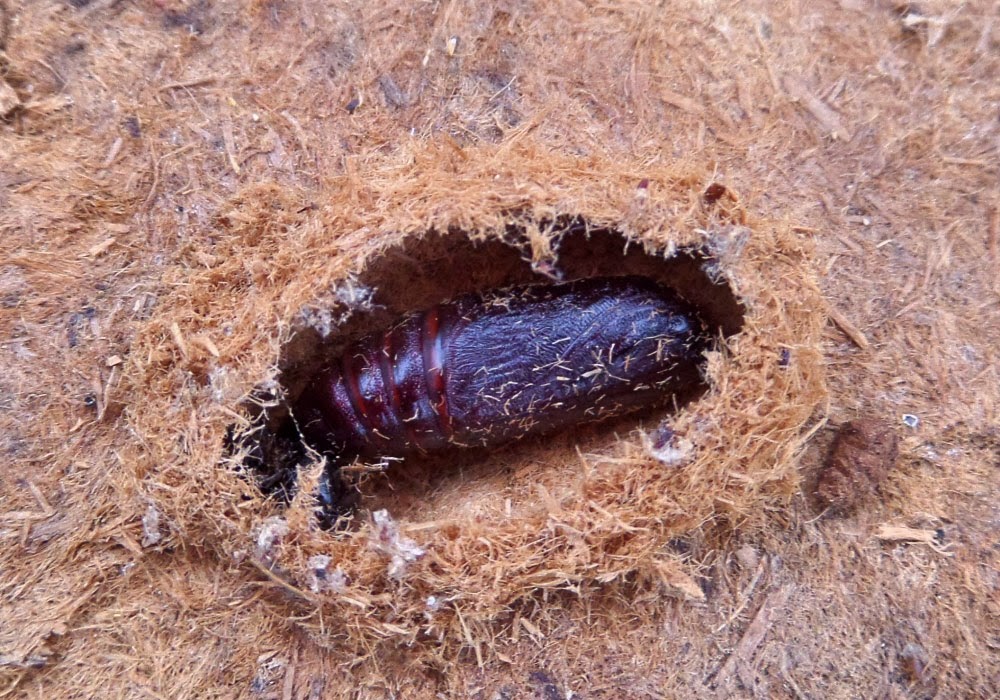I think it's best to start for non Bee keepers with a short explanation of a basic hive structure. Shown below is a French Dadant Ruchette which is basically a small starter hive and is exactly the same as a full size Dadant hive in design, Dadant being a style of hive.
The box structure at the bottom is called the Brood box which is where the bee colony lives.
Next with the hole in the middle is the Crown board or the cover that goes over the bees. The hole in the center is for placing a syrup feeder over or for placing a block of fondant for the bees to eat. When not in use it is normal to close it with a small cover.
Finally standing on edge in this photo is the outer metal covered weatherproof lid. All very simple really.
From time to time I lift the outer lids on my active hives to check everything is OK and as it's quite common to find various creatures that have made it their home I thought I'd take a few photos over the last week to have a reference for the future and of course a bit of winter fun.
Perhaps no great surprises but here they are:
Mottled shield bug Rhaphigaster nebulosa and Common European earwig Forficula auricularia
Heterogaster urticae Nettle Ground Bug and Aphanus rolandri.
Melanocoryphus albomaculatus, Seed bug
Rhyparochromus vulgaris
Ruby Tiger caterpillars Phragmatobia fuliginosa with Pupa below.
Seven spot ladybird Coccinella septempunctata
Anyphaena accentuata ??
Garden spider Araneus diadematus??
A nest of four Wood Mice Apodemus sylvaticus (Mulot sylvestre in French)
Clubiona stagnatilis ??
Harvestman spider sp??
Leaf cutter bee "nest"
Weevil - Larinus sp. (poss-turbinatus)
Agonopterix arenella a moth that hatches in the autumn and spends the winter as an adult and a mud nest of Auplopus carbonarius a solitary wasp that eats mostly spiders.
Asian Harlequin ladybird, an introduced species.
Reduvius personatus or the masked hunter, an Assasin bug that covers itself with dust and other particles in the Nymph stage.
Chris

















